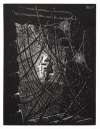Francis
Newton Souza
Francis Newton Souza, a founding member of the Bombay Progressive Artists' Group, revolutionised Indian modern art with his striking expressionism and unflinching exploration of contemporary themes. If you're seeking original Francis Newton Souza prints and editions for sale or would like to sell, request a complimentary valuation and browse our network’s most in-demand works.
Francis Newton Souza art for sale
Discover Francis Newton Souza prints for sale, exclusively available through our private network of collectors. Explore signed and unsigned screenprints, lithographs, digital prints, and rare editioned proof prints by era-defining blue chip artists.
Sell Your Art
with Us
with Us
Join Our Network of Collectors. Buy, Sell and Track Demand
Biography
Born in 1924 in India, Francis Newton Souza faced a tumultuous childhood marked by personal loss and illness, which shaped his fierce, rebellious spirit. He moved to Bombay in his youth and pursued art education at the Sir J.J. School of Art before being expelled for his involvement in the Quit India Movement. In 1947, he founded the Bombay Progressive Artists' Group alongside other avant-garde artists, advocating for a break from traditional Indian art forms. His early works are known for their bold lines, expressive figures, and themes that reflected his deep engagement with socio-political issues.
Souza's career flourished after he moved to London in 1949, where he became a prominent figure in the British art scene. His paintings and their and unflinching portrayals of taboo subjects, earned him acclaim. He exhibited widely across Europe and America, gaining recognition for his style that fused Indian themes with Western modernism.
His later move to New York in the 1960s allowed him to engage with the American art scene, where he developed a network that furthered his international presence. Despite facing criticism for his controversial subject matter, Souza remained steadfast in his vision, influencing the trajectory of Indian art for generations. His legacy is reflected in his unyielding commitment to artistic freedom, challenging conventional boundaries and encouraging future artists to explore themes of identity, politics, and society without restraint.














